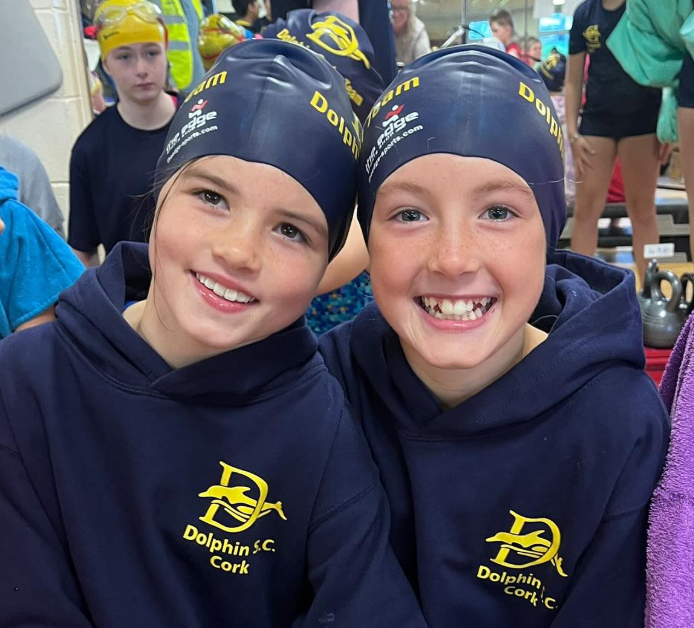PARENTS GUIDE
Parents Guide to Competitive Swimming
You can help your child enjoy swimming by:
DEVELOPING AN ”ATHLETES FIRST, WINNING SECOND” PERSPECTIVE
BUILDING YOUR CHILD’S SELF-ESTEEM
LETTING THE COACH, COACH
HELPING AND ENCOURAGING YOUR CHILD IN SETTING REALISTIC GOALS
Developing an “Athletes first, winning second” perspective
Every decision parents make in supporting and directing their child in sport should be based on what is best for the child first and what may help the child win second. This perspective of athletes first, winning second can help some children achieve more than they would if they were consumed with the idea of winning. An obsession with winning can create a fear of failure, which may result in less than average performance and an upset child.
Building your child’s self esteem
As a parent, you are one of the main influences in your child’s life, and one of your most important roles is to build their self-esteem. A child with good self-esteem is more likely to be proud of their personal accomplishments, accept challenges and new tasks and also, help others. On the other hand, children who find their confidence through winning can go through some very hard times when they lose.
It is important that your child knows they can be successful without winning. If your child is aiming to beat their personal best (PB) for a certain race, and they accomplish that, then they are successful regardless of what place they finish in.
As long as your child puts in their best effort, make them feel like a winner!
Let the Coach, coach
It is the coach’s job to offer a child constructive criticism on their swimming. The parent’s role is to support, encourage and recognise their child’s efforts. If a parent attempts to coach their child, the child may get confused with conflicting information. It is equally important to never undermine the coach in front of the athlete, as this can be extremely harmful to the coach and athlete relationship, which is necessary for success. Help and encourage your child in setting realistic goals. The competitive side of swimming is very important to the development of athletes and the sport of swimming. At a junior level, the most important factor is participation, effort and skill development.
Beating their PB and learning a new skill are both examples of realistic and attainable goals for a junior swimmer. Regardless of whether your child will win gold for Ireland or whether they are equally happy competing at club events, the sport must be fun to maintain their interest. Always ensure that your child has their PB recorded and that each time they race, this is what they are trying to beat rather than other people. PB recording ensures the focus is on individual improvement rather than purely on winning or losing. Your child may come 10th in a race, but if they beat their PB, they are a winner.
Communication with your child is important. Talk to them about their training – are they getting along with their squad and most importantly with their coach. If they are not, you may need to assess the situation, and decide on what needs to be done to resolve any issue with the least amount of disruption to your child and the squad. Ask them questions after training such as:
“What new skill did you learn today?”
“What was the best thing that happened today?”
“What does your coach think you need to work on?”
Communication with your child also requires your support in telling them how proud you are of them, no matter how they swam. Never be disappointed in your child’s swim – keep the focus on how well they did to make it to that point in their swimming career, and where they can go from here.
PARENTS ON DECK / VIEWING GALLERY
These rules will apply for all pre-competitive & competitive squads; Junior to Senior.
✓ Coaches MUST be allowed to control and implement every session, as they are trained to do so.
✓ Trust of the parents and swimmers in the coach is important and the club has a very active and efficient Child Protection policy in place to safeguard any potential issues which may arise during sessions, or otherwise.
✓ Every session will have a minimum of one but preferably two “Parents on Duty” at all times – as required and outlined by Swim Ireland.
✓ Parents may be allowed access to the viewing gallery for 5 minutes at the start and for 10-15 minutes at the end of each session.
✓ Only serving committee members may be granted access to the pool viewing area for the duration of each session, if it’s ok with the coach on duty.
✓ If a parent has any concerns about their child in the pool then they can follow a number of pathways to come to a suitable solution. These options may be:
• Request an informal conversation with the coach in charge either before or after the session• Request an informal conversation / meeting with the Head Coach or Child Protection Officer (CPO) regarding their concerns• Relay their concerns to a serving committee member or CPO or Head Coach• Request that the Head Coach observe the session• Request that a member of committee or CPO sit in on the session• Email the Head Coach, cc’ing in the CPO and possibly a member(s) of committee• Request a meeting with the Head Coach and request that the relevant Parent on Duty be present also
It is vital that every session has a Parent on Duty, otherwise the session cannot proceed.



